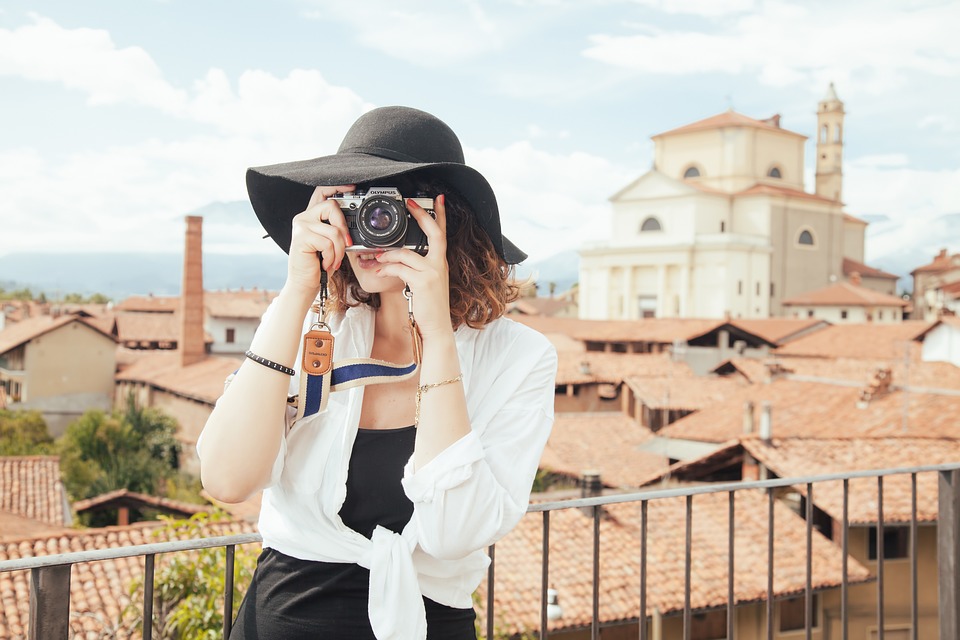Traveling alone is a thrilling and life-changing experience that promotes independence and self-discovery by letting people see the world at their speed. Solo travel is exciting, but safety must come first to guarantee a safe and enjoyable experience for solo travelers. With the help of this thorough book, solo travelers may explore new places with assurance and peace of mind thanks to its wealth of safety advice.
Research and planning
Careful planning and in-depth research are the first steps toward solo travel safety. Selecting places with a reputation for being safe and welcoming to lone travelers is a first step.
- Destination Selection: Choose locations known to be secure for lone travelers. Look into local safety regulations, travel advisories, and any areas that should be avoided.
- Taking Accommodation Into Account: Choose lodging that has received good evaluations from lone travelers. Seek solutions conveniently and safely situated in the middle of busy regions.
- Emergency Information: Learn who to contact in an emergency and where the closest embassy or consulate is located. Maintain a hard copy and digital copy of this data.
Communicate and keep in touch
When traveling alone, being in touch with family and friends increases safety. Preventive safety measures include regularly informing a close friend or relative about your plans and whereabouts.
- Sharing Itineraries: Give trustworthy contact access to your comprehensive itinerary. Provide details about your travel, lodging, and scheduled activities.
- Check-In Schedule: Decide on a regular time to check in with your assigned contact. Inform them of any last-minute modifications and share your daily schedule with them.
- Local SIM Card: You might want to buy your phone a local SIM card when you are there. This guarantees that throughout your trip, you will have trustworthy communication.
Stay informed
Lone travelers must stay updated on local customs, legislation, and news. A knowledgeable traveler is better able to negotiate unfamiliar surroundings safely.
- Local Laws and Customs: Learn about and abide by your community’s laws, customs, and cultural standards. Being familiar with these elements makes the experience safer and more pleasurable.
- Current Events: Keep up on regional and national news. Making educated selections requires awareness of potential disruptions or safety issues.
- Transportation Knowledge: Learn about and understand local transportation options, such as public transit and dependable transportation.
Trust your instincts
Individuals who travel alone should know their surroundings and rely on their instincts. Personal safety is significantly influenced by intuition.
- Paying Attention to Intuition: Follow your gut and leave a situation if it makes you feel uneasy or unsafe. A valuable resource for self-preservation is intuition.
- Confident Body Language: Show assurance by the way you move. This might lessen your vulnerability and discourage possible danger.
- Preventing Isolation: Avoid isolating yourself, especially when exploring at night or in strange places. Remain in populated, well-lit locations.
Secure your things
One of the most essential aspects of traveling safely alone is to secure your possessions. Traveling without concern is ensured by taking anti-theft measures.
- Anti-Theft Accessories: Invest in anti-theft accessories, including wallets that block RFID signals, lockable zippers, and bags that resist slashes.
- Document Safety: Always have photocopies of all necessary documents, including your ID, passport, and travel insurance. Store the originals safely in your lodging.
- Digital security: Be cautious while using public computers, use two-factor authentication for online accounts, and connect to secure Wi-Fi networks.
Money matters
Prudent money management is essential for lone travelers. These suggestions improve financial security in several ways, including selecting the best payment options and preventing theft.
- Cash and Cards: Keep a combination of cash and cards on you and steer clear of flashing considerable cash in public. Utilise ATMs in safe, well-lit areas.
- Hidden Pockets: To reduce the chance of theft and keep valuables near your body, think about utilizing a money belt or hidden bag.
- Emergency Cash hoard: For unforeseen circumstances, maintain a separate emergency cash hoard in a secret area.
Solo-Friendly technology
By offering resources for communication, navigation, and emergency scenarios, technology can help improve the safety of lone travelers.
- Navigation Apps: To make navigation easier, use dependable navigation apps. Using a ride-sharing service, you can share your current position with reliable contacts.
- Language Translation applications: Install these applications to help communicate in places where English may not be the primary language. Installing local emergency applications can help you stay informed about services, notifications, and resources in the event of unanticipated circumstances.
Well-being and health
Sustaining optimal health and placing a high value on well-being are vital components of a satisfying solo travel experience. These pointers guarantee a safe vacation experience, from getting travel insurance to drinking enough water.
- Comprehensive Travel Insurance: Invest in comprehensive travel insurance covering unanticipated circumstances such as trip cancellations and medical crises.
- Health Precautions: Find out which vaccinations are necessary for your destination and pack a basic first aid kit in case of minor medical emergencies.
- Hydration and Rest: Prioritize your health by drinking enough water, getting adequate sleep, and taking breaks as needed. Travelers in good health are safer travelers.
Socializing safely
To improve their experience, solitary travelers frequently look for social encounters. Socializing can benefit traveling alone if one chooses safe locations and knows one’s limitations.
- Public Spaces: Choose well-known venues for socializing, such as famous cafés, eateries, and planned social gatherings.
- Group Tours and Activities: To network with other travelers, consider participating in group tours or activities. Number safety adds an extra degree of protection.
- Notify Accommodation Staff: For additional security, let the personnel at your accommodations know about your plans and any group activities you’ll be participating in.
Emergency Readiness
Being ready is essential for lone travelers. A quick and well-informed response is ensured by being aware of local emergency protocols and keeping information close at hand for unforeseen circumstances.
- Local Emergency Numbers: Make a note of or keep close at hand the local emergency numbers, such as the police, ambulance, and embassy or consulate of your nation.
- Emergency Evacuation Plan: Become acquainted with your lodging’s emergency evacuation protocols. Recognize the closest exits and places for emergency meetings.
- Digital Emergency Contacts: Make a digital file containing emergency contacts, both local and domestic contacts. Make this information freely available.
Traveling alone is an incredible experience that offers new experiences, cultural immersion, and self-discovery. Solo travelers can set off on their adventures with confidence and peace of mind by emphasizing safety and implementing these thorough safety guidelines. Recall that the keys to a safe solo travel experience are awareness, readiness, and faith in your gut. With prudence, curiosity, and an adventurous spirit, embrace the world. Happy travels!

